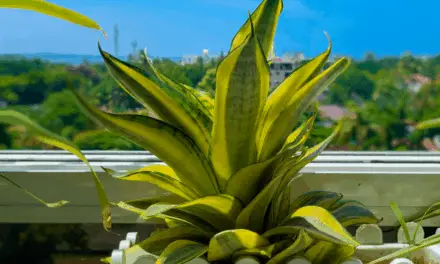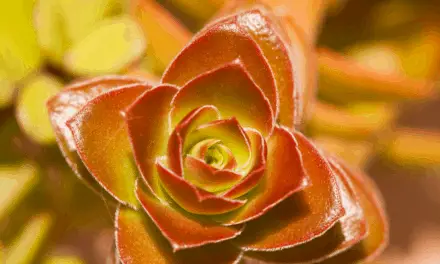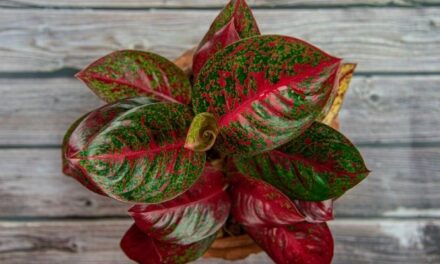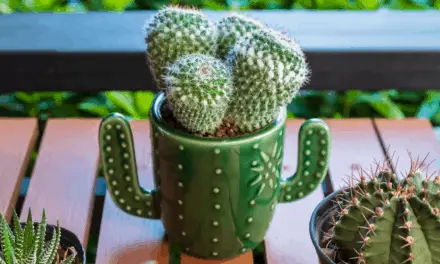African violets are beautiful purple flowers that can bloom all year and look great in almost any space.
From the office to the bedroom, a well-bloomed African violet can transform a room.
Most of the time, this flower grows easily without much attention but sometimes and for a variety of reasons, they don’t grow as they should.
If you’ve ever stared at your violet thinking “why is my African violet not growing?” then we hope this article will answer some of your questions.
Table of Contents
Why Is My African Violet Not Growing?
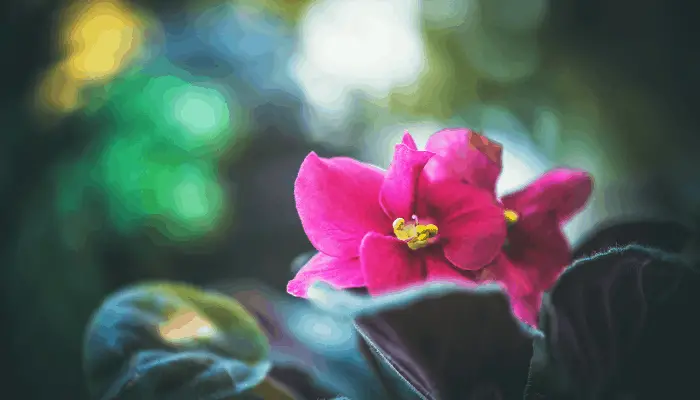
Your African violet may not be growing property because it has too little light, because it is too dry or too wet, because it has been fertilized incorrectly, or because it has been repotted into a pot that is too big or too small.
Let’s take a more in-depth look at these factors and try to work out why your African violet is not growing.
Too Much Or Too Little Light
An African violet that receives too little light can and will have problems growing.
African violets prefer bright indirect light and when they don’t get enough of it, they will stretch in an attempt to absorb more sunlight.
On the other side of things, though, too much sunlight can burn and cause your plant to wilt because its foliage is trying to hold on to water.
Ideally, an East-facing window with a sheer or light-colored curtain to filter out the harshest of the sun’s rays is best.
Flowy curtains that are somewhat see-through are perfect options.
The flower needs darkness and should be exposed to the darkness of night every day.
Despite the fact that they require quite a bit of light, they also need this darkness; it is the darkness that triggers the flowers to bloom.
African violets also require bright light in order to bloom, but they cannot tolerate hot, full sun because their delicate leaves can easily be burnt by the intense light.
Related Article: Why Are My African Violet’s Flowers Turning Brown?
Fertilizer May Help Your African Violet To Grow
Since your African violet is likely kept in the house, it’s up to you to provide it with nutrients.
The flowers are typically kept in small pots that don’t retain a ton of nutrients and, if you don’t fertilize them often enough, the health and vitality of your violet can suffer.
Not enough fertilizer means that your plant won’t have the energy it needs to bloom but too much nitrogen-rich fertilizer can encourage more foliage growth than flower growth.
Try to find a fertilizer that has been made specifically for African violets.
Safe fertilizers should contain a healthy mix of nitrogen, phosphorus, and potassium.
Don’t use a fertilizer that lists urea as a nitrogen source, as it’s been known to cause damage to African violets and burn their roots.
Watering Can Affect How Your African Violet Grows
How much and how often you water can be a big factor, too.
When it comes to water, African violets are kind of picky.
They do best when their soil is evenly moist, kind of like a sponge that has been wrung out.
Unlike other plants, they don’t enjoy drying out between waterings but they don’t do well when they are too wet, either.
Too much water can cause root rot, while their roots will also start to die if their soil is too dry.
Feel the top of the soil to determine if your African violet needs watering: if the soil is dry to the touch, then it needs some water.
You should allow your African violet to dry out before each watering because its fine roots need air, which will not be able to penetrate soil that is continually wet and soggy.
Repotting
How you repot your African violet can also cause it to stop growing as it used to.
With most plants, bigger pots are always better.
With African violets, however, this isn’t necessarily the case.
If you’ve transplanted your flower from a small pot and into a larger one and have noticed a decline in your African violet’s health, it could be because your pot is too big.
Sure, all violets need to be repotted eventually but there is a fine line between the perfect size and too big of a size.
African violets need to be root bound in order to grow well, so if your pot is too deep or too large, the roots will not be able to reach the bottom, resulting in little to no growth.
Too small of a pot could also be a hindrance as it could restrict the roots instead of allowing them to become root-bound.
Final Thoughts
With such beautiful flowers and amazing growth, it’s easy to see why African violets are such a popular household plant.
While some say that they are hard to care for, we beg to differ — it all just comes down to whether you take the time and effort to ensure that the plant’s basic needs are met, much like you would with a beloved pet dog or cat.
If you’re wondering why your African violet is not growing, just remember that lighting, water, fertilization, and repotting are the keys to success in the world of these plants.
Try to stick to the advice in this guide and your African violet should thrive long into the future.

